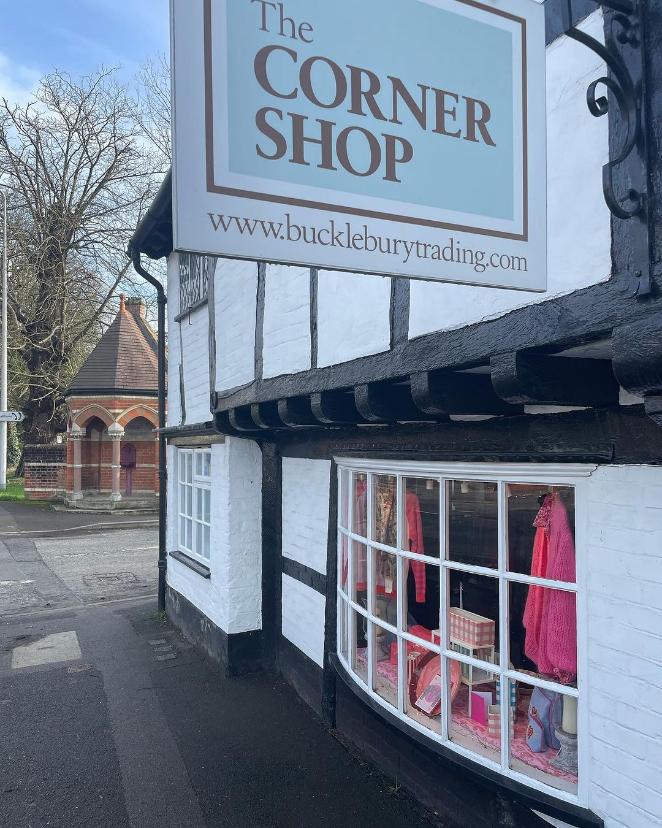From artisanal crepes to rebellious cheesecake waffles, Reading's breakfast rebels are transforming morning meals. These seven spots will revolutionize how you start your day.
Village Shop at Risk: Community Rallies to Save Local Store
In the quaint village of Woolhampton, a beloved local institution faces an uncertain future. The small traditional store, a cornerstone of community life, may soon be transformed into flats, sparking concern among residents. At the heart of this story is Alice Panter, a 39-year-old long-time resident who has witnessed the shop change hands multiple times over the years, with each new owner struggling to make the business thrive.
A Call for Community Action

As the threat of losing their village shop looms, locals are banding together with a bold proposition: to return the store to community ownership. This grassroots movement reflects a growing trend in rural areas, where residents are taking matters into their own hands to preserve essential services. The potential loss of this shop represents more than just the closure of a business; it symbolizes a threat to the village's character and convenience.
A Community's Lifeline at Risk
The small traditional store in Woolhampton has been more than just a place to buy groceries; it has been a vital hub for the community. However, its future is now uncertain as plans to convert the space into flats loom on the horizon. This potential loss has galvanized the village residents into action, with many calling for a return to community ownership.
Alice Panter, a 39-year-old long-time resident, has witnessed the shop's struggles firsthand. Over the years, she has seen the store change hands multiple times, with each new owner facing difficulties in making the business sustainable. Despite these challenges, the importance of the shop to the village's social fabric has never diminished.
The Struggle for Survival

The recurring changes in ownership highlight the broader issues facing small, rural businesses in today's economic climate. Each transition brought hope for revival, but the underlying challenges of maintaining a profitable village shop have persisted. The current threat of conversion into flats represents a tipping point, forcing the community to confront the possibility of permanently losing this local institution.
A Growing Trend in Rural Communities
Woolhampton's situation is not unique. Across the country, rural communities are facing similar challenges as local services and amenities come under threat. The proposal to return the shop to community ownership reflects a growing trend where residents take collective action to preserve essential local services.
This grassroots approach has seen success in other villages, where community-owned shops have not only survived but thrived, becoming sustainable hubs that cater specifically to local needs. By pooling resources and volunteering time, communities can often keep these vital services running where traditional business models have failed.
More Than Just a Shop

For the residents of Woolhampton, the potential loss of their village store represents more than just the closure of a business. It symbolizes a threat to the village's character and convenience. Local shops like these often serve as informal meeting places, fostering a sense of community and providing a lifeline for those with limited mobility or transportation options.
The closure would not only impact the availability of everyday essentials but could also affect the social wellbeing of residents, particularly the elderly or those without easy access to larger towns. This underscores the multi-faceted role that such establishments play in rural life, extending far beyond their commercial function.
As the community rallies to save their shop, the coming weeks and months will be crucial in determining whether this beloved local institution can be preserved for future generations or whether it will become another casualty of changing rural dynamics.
Village Shop at Risk: Community Rallies to Save Local Store
The Power of Community Ownership
The proposal to return Woolhampton's shop to community ownership represents a potential solution to the recurring challenges faced by previous owners. This model has proven successful in other rural areas, where residents have pooled resources and volunteered their time to keep essential services running. Community-owned shops often benefit from a deeper understanding of local needs and can tailor their offerings accordingly, creating a more sustainable business model.
Preserving Village Identity

The fight to save Woolhampton's shop goes beyond mere convenience; it's about preserving the village's identity. Local stores often serve as informal community centers, fostering connections between residents and maintaining the unique character of rural life. The loss of such a central institution could fundamentally alter the fabric of the village, potentially impacting its attractiveness to both current and future residents.
Economic and Social Implications

The potential closure of the shop raises concerns about the broader economic health of rural communities. As local businesses disappear, villages can become less self-sufficient, forcing residents to travel further for basic necessities. This not only impacts the local economy but can also lead to increased isolation, particularly for those with limited mobility or transportation options. The community's efforts to save the shop reflect a desire to maintain a vibrant, sustainable local economy.
A Test Case for Rural Resilience
Woolhampton's struggle to save its village shop serves as a test case for rural resilience in the face of changing economic landscapes. The outcome of this community effort could provide valuable insights for other villages facing similar challenges. Success here could inspire other communities to take proactive steps in preserving their local services, potentially sparking a wider movement of rural revitalization.
Looking to the Future
As Woolhampton residents mobilize to save their shop, they are not just fighting for a building or a business, but for a vision of rural life that values community, self-sufficiency, and local character. The coming months will be crucial in determining whether this vision can be realized. Whatever the outcome, the community's response to this challenge demonstrates the enduring spirit of rural villages and their determination to shape their own futures in the face of adversity.
